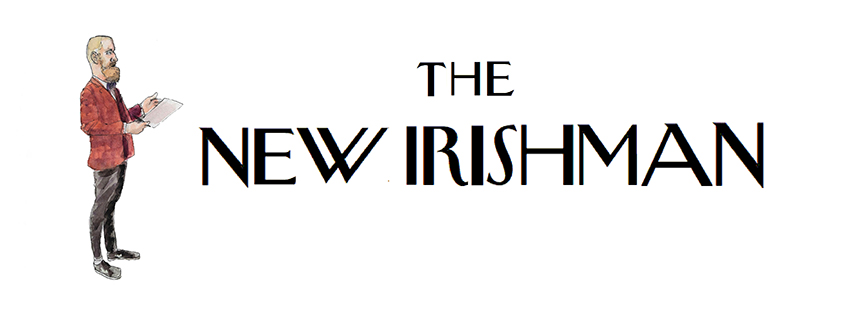"Northern Ireland's high-flying Catholics are not necessarily the ones old-fashioned Catholic nationalists would hope for and old-fashioned Protestant unionists would contemplate with dread and terror."
"Many nationalists – and quite a number of unionists – dismiss the notion of Catholic unionists. “They are like unicorns,” is an often-repeated line. “They don’t exist.”
But though they are small in number, they are not mythical creatures, and they could have a role in determining the constitutional future of Northern Ireland."
“If we want a better society it can’t be ‘them and us’.” These are the words of DUP leader Peter Robinson delivered at the 2011 party address. He said:
"Recent surveys revealed that over half of Catholics wished to remain part of the UK and only a third wanted a united Ireland. I want to create a society where those numbers are improved and where our place in the Kingdom is not reliant on demo-graphics. There can be no greater guarantee of our long term security in the Union than the support of a significant part of the Catholic community."Robinson said in March 2012 in a speech in Iveagh House in Dublin to mark Edward Carson and the Ulster Covenant:
"I have said on many occasions that from a party point of view I want to see more Catholics supporting the DUP. I have no doubt that there are many Catholics in Northern Ireland who have much more in common with the social and economic policies of the DUP than they do with either Sinn Fein or the SDLP and I welcome some early signs of modest progress.
However, I suspect that the survey results do not point to an imminent avalanche of Catholics voting DUP but rather, outside party politics, to a wider acceptance of the present constitutional position of Northern Ireland and as importantly - their place in it."Newton Emerson wrote in the Sunday Times:
"[From 2008] Robinson sold a positive message on power-sharing and inched towards a constructive and inclusive unionism, albeit with varying degrees of plausibility, until the December 2012 flag protest knocked him back into permanently defensive mode."
Alex Kane said the European Elections in 2014 were the goodbye moment to the ‘DUP’s 2011-12 ‘moment’. He wrote:
"Back in that 2011-12 period I believed that Robinson was serious about the reach out strategy. Deep down I think he knew that, unlike Trimble (or even Paisley) he was in a position to make a real difference to politics in Northern Ireland...
What he also required was his grassroots to stop kneejerking to every bit of mischief and annoyance from Sinn Fein (flags and parades, for example) and for his MLAs not to panic every time Jim Allister or some newly created ‘loyalist front’ put the boot into the DUP.
Sadly, that was not to happen. From December 2012 kneejerk and panic became the norm for the DUP generally, forcing Robinson — often against his will and instincts, I suspect — into one u-turn after another.
It was exactly what Trimble had to do and each new u-turn lost him support inside and outside the UUP. And in the Euro and council elections a few months ago the DUP lost its status as that majority voice and vehicle of unionism. The TUV/UKIP/PUP took a third of the unionist vote and the UUP managed not to slip any further.
That was bad news for the DUP. It was worse news for Robinson. And it was a final goodbye to the 2011-12 ‘moment’. Neither Robinson nor the DUP is going to be reaching out to any non-unionists or even ‘soft’ unionists anytime soon."A DUP representative said to Alex Kane in 2014:
"David Trimble gifted 70-80000 votes, maybe more, to us [the DUP] when he went down the reach-out-to-others line. We lost our top-dog position after three years when Peter made those same sort of noises. Look at Jim Allister now. The DUP won’t be doing anymore of that Trimble stuff.Newton Emerson wrote:
"As with integrated education, Sinn Féin sees mixed housing as a plot to ‘normalise’ Northern Ireland and therefore partition."And wrote here:
"A functioning Northern Ireland turns soft nationalists into soft unionists."Patrick Murphy wrote in the Irish News, October 31 2015:
"Opposition to the Catholic Church is now usually a pastime exclusively enjoyed by Catholics. The Church’s self-inflicted demise has largely removed it from the political arena. Republicans have become nationalists and in accepting the legality of partition, nationalism has become caffeine-free unionism.
Unionism is now discovering that there is nothing more annoying in politics than not being able to find an enemy...
Nationalism would then become the new unionism, which might prompt unionists to realise that the soul of Irish unionism still lies in Ireland."Malachi O'Doherty wrote:
"A cornerstone of the Union is its acceptance by the Catholic middle classes who call themselves ‘nationalists’. The jeopardy to the peace process after brexit lies in the prospect of them changing their minds."Gerry Moriarty wrote:
"Many nationalists have been content to remain in the UK because of the economic security it brings, because of the British National Health Service, because of the strength of sterling, because of the welfare system, the educational system and so on.
The majority of middle-class Catholics are especially happy with these arrangements. Their confident sense of themselves is bolstered by the Belfast Agreement which allows them to express their Irish identity within the current constitutional position.
But if the exit from the EU does create serious economic instability – and it is an if – then satisfaction with the UK could change, particularly if British Chancellor of the Exchequer George Osborne’s prediction that it would prompt a “profound economic shock” comes true."


No comments:
Post a Comment